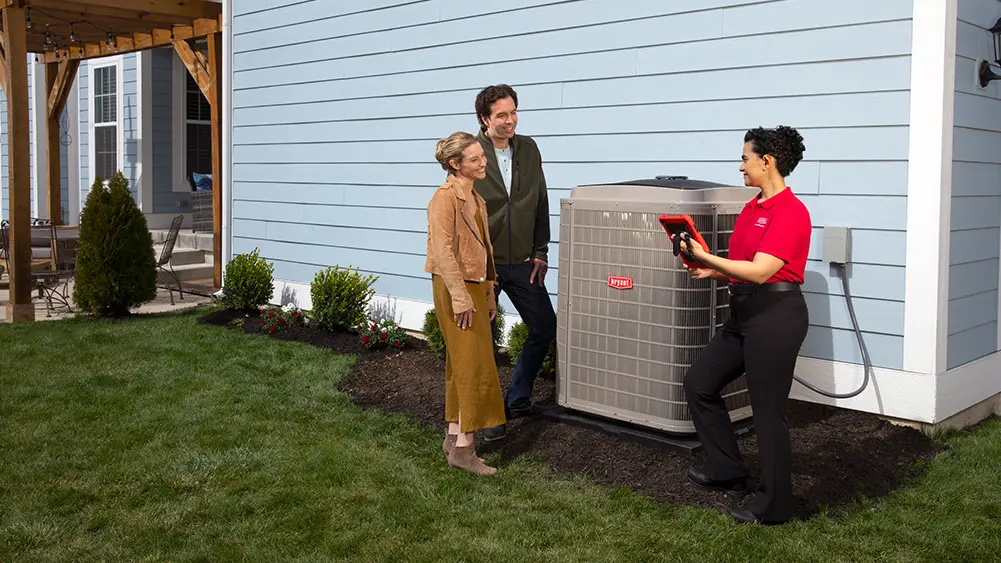
Common Air Conditioning FAQs in Lubbock, TX
When the sweltering heat of a Lubbock summer hits, homeowners often find themselves with pressing questions about their air conditioning systems. Whether you’re curious about the lifespan of your unit, wondering if it’s time for a replacement, or concerned about how to maintain optimal indoor comfort, understanding the ins and outs of AC systems is essential. To help you navigate these common concerns, we’ve compiled answers to the top air conditioning FAQs specific to the unique climate of Texas.
Replacing an AC unit is a significant investment for any Texas homeowner, and the cost can vary depending on several factors. The size of your home, the type of unit you choose, and the complexity of the installation all play a role in determining the final price. At Nugent Mechanical Contractors, we understand that this is a major decision, so we work with you to find the best solution for your budget and comfort needs. Contact us for a personalized estimate tailored to your specific situation.
In Texas, where the summers are notoriously hot, a well-maintained air conditioning unit typically lasts between 10 to 15 years. However, the intense heat and constant usage can sometimes shorten this lifespan. Regular maintenance is key to ensuring your unit operates efficiently for as long as possible. At Nugent Mechanical Contractors, we offer comprehensive maintenance plans to help extend the life of your AC and keep it running smoothly.
Going without air conditioning in Texas, especially during the peak of summer, is not just uncomfortable but can also be dangerous. The extreme heat can quickly lead to heat exhaustion or heat stroke, particularly for vulnerable individuals such as the elderly or those with health conditions. If your AC breaks down, it’s crucial to have it repaired as soon as possible.
Running your AC when the outdoor temperature is below 60 degrees Fahrenheit can cause damage to your system. The oil in the compressor may thicken, leading to increased wear and tear. In Texas, while this isn’t a common concern during summer, it’s something to keep in mind during cooler months.
If your AC unit is struggling to start, making a humming noise, or isn’t cooling as effectively as it should, a bad capacitor might be the culprit. The capacitor is crucial for powering the motors that drive the compressor and fans. A professional diagnosis is recommended to confirm the issue.
When it’s 100 degrees outside, your AC should be able to keep your home about 20-25 degrees cooler than the outdoor temperature. This means your home should ideally be between 75 to 80 degrees. Setting your thermostat too low could overwork your unit and lead to higher energy bills.
Cooling a house from 90 degrees to 72 can take anywhere from 2 to 4 hours, depending on the efficiency of your AC system and the size of your home. If your AC is taking longer than this, it might be struggling with performance issues such as dirty coils, low refrigerant, or inadequate insulation.
AC coils should be cleaned at least once a year to maintain optimal efficiency. Dirty coils can reduce your system’s ability to cool your home and increase energy consumption. For homeowners in Texas, where AC usage is high, more frequent cleaning may be necessary.
Signs of dirty AC coils include reduced cooling efficiency, longer cooling times, and higher energy bills. You might also notice that your system is running constantly but not achieving the desired temperature. If you suspect dirty coils, it’s important to address the issue promptly.
During the hottest months, it’s not uncommon for an AC system in Texas to run 12 to 16 hours per day. This ensures that your home stays cool and comfortable despite the relentless heat. However, if your AC is running continuously without breaks, it may indicate an issue that needs attention.
It’s generally better for your AC to cycle on and off rather than running constantly. Frequent cycling can help maintain a consistent indoor temperature and reduce wear and tear on the system. However, if your AC is cycling too frequently, it might be a sign of an underlying problem.
If your AC is turning on every 10 minutes, it could be short cycling, which may be caused by issues such as a clogged air filter, low refrigerant, or a malfunctioning thermostat. Short cycling puts extra strain on your system and can lead to higher energy bills.
Yes, during extreme heat waves, even the most efficient AC systems can struggle to maintain the desired indoor temperature. This doesn’t necessarily mean your AC is faulty; it might simply be working at its maximum capacity. Ensuring your home is well-insulated and minimizing heat gain from windows can help.
To prevent your AC from running constantly, make sure your home is properly insulated, your air filters are clean, and your thermostat is set to a reasonable temperature. Regular maintenance is also crucial to avoid overworking your system. If your AC is still running nonstop, it’s time to call in the experts.
Leaving your AC on all night can increase your energy bills, but the cost can be minimized by using a programmable thermostat to raise the temperature slightly while you sleep. Proper insulation and ceiling fans can also help maintain a comfortable temperature without overburdening your AC.
Contact Nugent Mechanical Contractors For Answers To All Your Air Conditioning FAQs
For answers to all your air conditioning FAQs, trust Nugent Mechanical Contractors. Our experienced team is here to help you keep your home comfortable year-round. Whether you need maintenance, repairs, or a full system replacement, we’re dedicated to providing top-notch service with a friendly, family-forward approach. Contact us today to learn more about how we can assist you with all your HVAC needs in Lubbock, TX, and surrounding areas.
